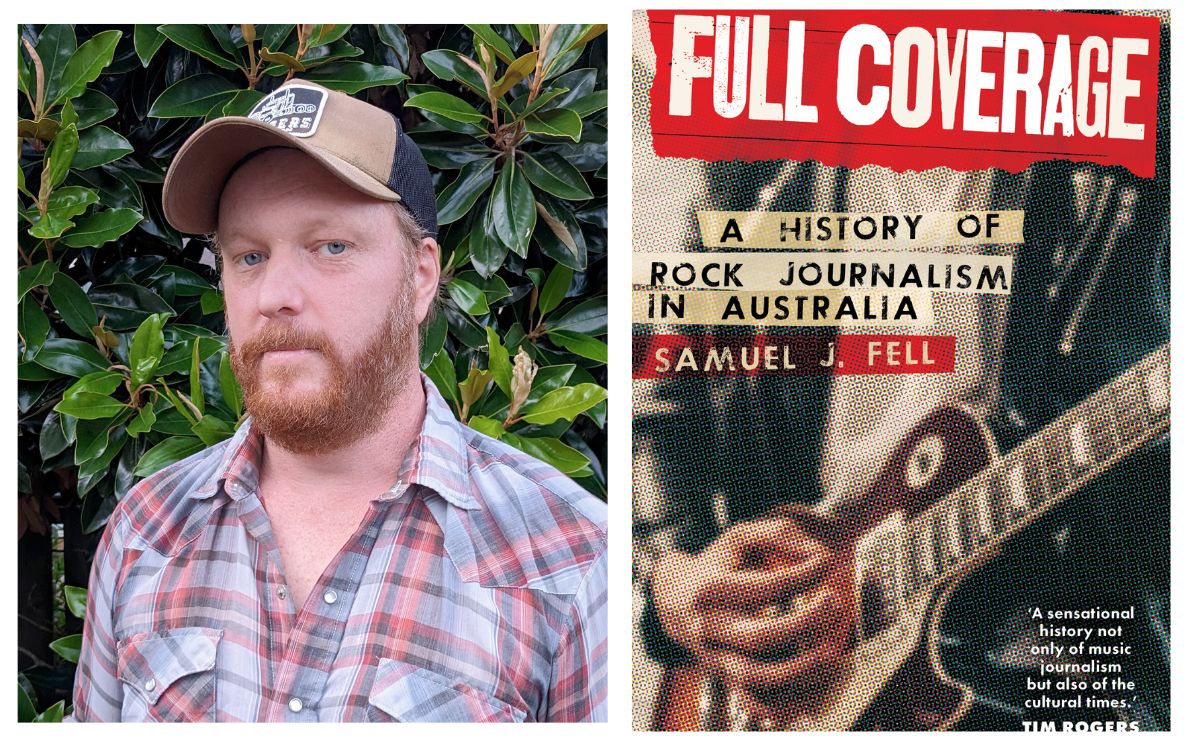A thrilling sense of larrikin opportunism – and more than a sprinkling of hilarious, dumb luck – permeates Samuel J Fell’s Full Coverage, a history of Australian rock journalism.
It’s a breezy yet evocative read, refusing to get bogged down in nostalgia, intellectual pretension or the hubris often associated with rock’s stoking of its own legend.
That seems to befit a publishing industry the output of which reflected ambition, passion and depth, but the fortunes of which were often quickly, and decisively, subject to the whims of simple factors: money, ego and logistics.
As it tracks through the decades, for example, the book explores the impact of evolving technology, from the arrival of new “offset” standards of printing in the mid-60s to the advent of the dreaded internet, including the way Facebook effectively killed street press as a form of grassroots communication.
A lot of the storytelling is left to the words of major players (as well as archived material from sources such as Go-Set). Fell incorporates new insights of an impressive roll call of luminaries, including the likes of Roadrunner magazine’s Stuart Coupe, Phillip Frazer – founder of the seminal teen-pop newspaper Go-Set – journalist and novelist Lily Brett, Ian “Molly” Meldrum (naturally) and plenty more.
True, it lends the book some hazy imprecision at times, and the occasional contradictoriness (which Fell points out). That may irk the historical purists, but it’s also grist to a real sense of the voice(s) of the era, and the exciting yet transitory nature of these pre-digital publications, with often frantic and chaotic imperatives at play.
Reflections on the easy-come-easy-go nature of this world – with many publications, after having enjoyed their fleeting moments in the sun, lost to ‘the dustbin of history’ – lend Full Coverage poignancy.
But you can’t help admire (or envy) an age when DIY tenacity in a small industry could really pay off, when people who loved the music – and had skill and tenacity – could easily find themselves going tête-à-tête with rock stars or – like Phillip Stafford – buying legendary publication RAM for just $4000 in 1984, primarily because he was an ‘absolute fan of the mag’.
For those who lived them, a degree of incredulity dominates these memories. ’You’ve gotta laugh,’ [Stafford] says today. ‘It was a bit like Trump winning the election: what do I do now?’
Read: Book review: The Pit, Peter Papathanasiou
At a time when cold-blooded forces such as big tech’s AI is now seemingly hostile to DIY larrikin opportunism, that incredulity carries a depressing implication for the future of publishing. But Fell offers welcome optimism for the next, unwritten, chapter in rock journalism history, specifically a new great music publication. And Full Coverage reminds us that stranger things have happened before, hopefully accompanied by similar amounts of incredulous laughter.
Full Coverage, Samuel J Fell
Publisher: Monash University Press
ISBN: 9781922633934
Paperback: 352pp
RRP: $36.99
Publication: September 2023





